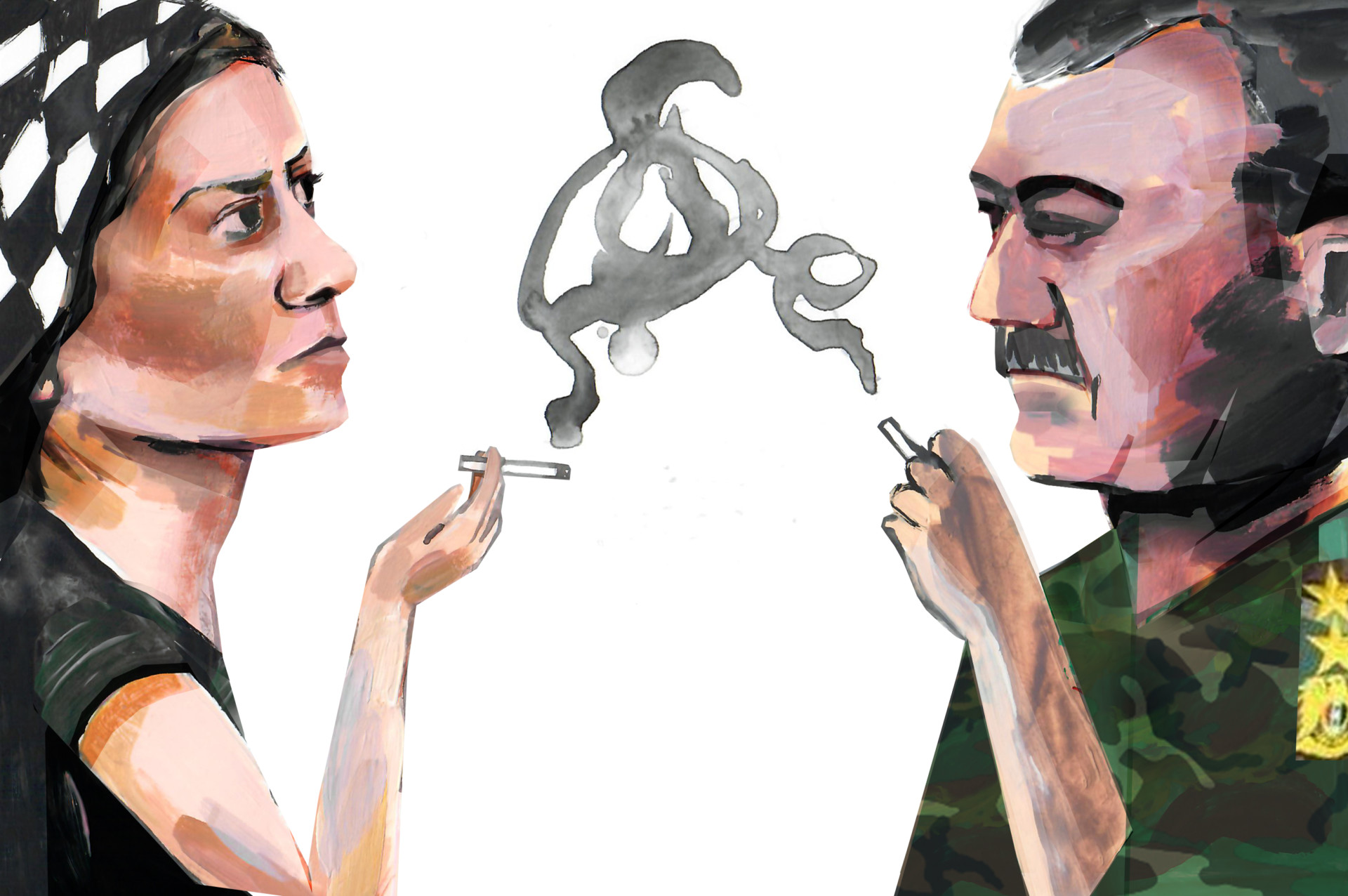A year ago, we had an idea.
It was an unusually optimistic one considering the dire state of the world, though that made the idea only more urgent to test.
What if, we thought, there were an American mainstream magazine devoted to covering the Middle East and the wider world written by people from those places? Could we do this while engaging nonspecialists who may be interested in global issues, rather than a specific region? The balance we came up with was to add a critical component: “And beyond.” To us, the two parts of our tagline “The Middle East and beyond” are equally important — we cover a wide range of topics from Paris to Morocco to Mumbai.
New Lines, as the name implies, was about shifting boundaries. The Middle East is central to our focus, but we cover an expansive geography, from the Atlantic to Africa and Asia. In one sense, the boundary we wanted shifted was how Western media covered the world. What if we offered depth and nuance to compensate for the shallowness and superficiality of so much cable news and foreign correspondence?
What if we amplified voices that transcended tidy, prefabricated narratives to expound on the changing nature of jihadism, or Ottoman history, or the plight of Chinese Uyghurs, or the far right in Europe and the United States, or the pandemic in India, or the Syrian civil war, or Bengali pop culture, or Afghanistan in the shade of America’s receding war?
Could we produce reportage and essays of a quality commensurate with that of larger publications with many times our budget and staff?
More important, would anyone read this thing?
A year later, New Lines Magazine exceeded expectations, not least our own.
It no doubt says something about the void our magazine has filled that our most popular story since our inception is Rasha Elass’ “Arab Life on Mars,” a beautiful meditation on the neglected genre of Arab science fiction, using the United Arab Emirates’ much-publicized Mars mission to the red planet as the relevant launchpad.
We’ve also broken plenty of news, particularly on Afghanistan. Feras Kilani offered the first detailed profile of the new ISIS “caliph.” Fazelminallah Qazizai provided an extraordinary dispatch from Sangin in Helmand province in April, foreshadowing the return of the Taliban to power in Afghanistan through the prism of its emerging “Islamic Emirate” there. He followed that scoop with another, going inside the Taliban’s previously unknown drone unit. Ahmed-Waleed conducted an exclusive interview with Anas Haqqani, a senior Taliban leader. Just last week, Nick Sturdee presented a granular portrait of Russian mercenaries based on data culled from a discarded tablet in Libya. Daryl Johnson wrote a detailed exposé about his 25 years working for the U.S. government to track the growing threat posed by white supremacists and anti-government extremists, only for his work to be politicized and his team dissolved.
Both our readers and our colleagues have taken notice. Our vision has been vindicated by consistently impressive traffic growth, month-on-month. Rather than click and leave, our readers spend considerable time on our essays, something we are very proud of. Our colleagues in major American media have also taken notice, featuring our work and our writers (and sometimes doing us the additional courtesy of running remarkably similar stories weeks or months later).
Over the course of one year, we have published 295 essays and 215 authors. Our authors are a mix of high-profile writers and first-time or new writers we discovered and provided a platform to. The latter is as important as the former, if not more, because part of our mission is to introduce and graduate talents into the mainstream.
Our provocative first-person essays have generated debate on social media and in the real world. See Hossam Abouzahr’s polemic about modern Arabic language instruction and the futility of diglossia, which brought to light a constant debate across classrooms and kitchen tables. Or Lydia Wilson’s essay on the state of the countering violent extremism industry two decades after 9/11 — an essay that generated considerable attention from professionals from around the world.
To our delight, writers have increasingly pitched us on the basis of our willingness to explore topics other outlets and newsrooms have ignored or dismissed, inquiring if we’d afford them the word length and flexibility to do so as they’d like. We would.
None of this would have been possible without our readers. Over months, they have read our work, shared it, emailed us with suggestions, tweeted at us — sometimes angrily. But, most of all, they have stayed with us.
And we’re just getting warmed up.
In the coming year, New Lines hopes to offer still more investigative reporting, incorporating open-source forensics with old-fashioned shoe-leather journalism in collaboration with other outlets, as well as dispatches from around the world — and right here in turbulent America. We are broadening our remit to encompass international coverage well outside the Middle East and Islamic world, though still with an emphasis on commissioning a diverse array of writers from all backgrounds.
You can be part of New Lines. Recommend writers. Pitch us stories. Give us feedback. To support us, you can follow us on social media, on Twitter, Facebook, Instagram, LinkedIn, and Youtube. You can also subscribe to our newsletter, and listen to our podcast on Apple Podcasts, SoundCloud, or Spotify.



